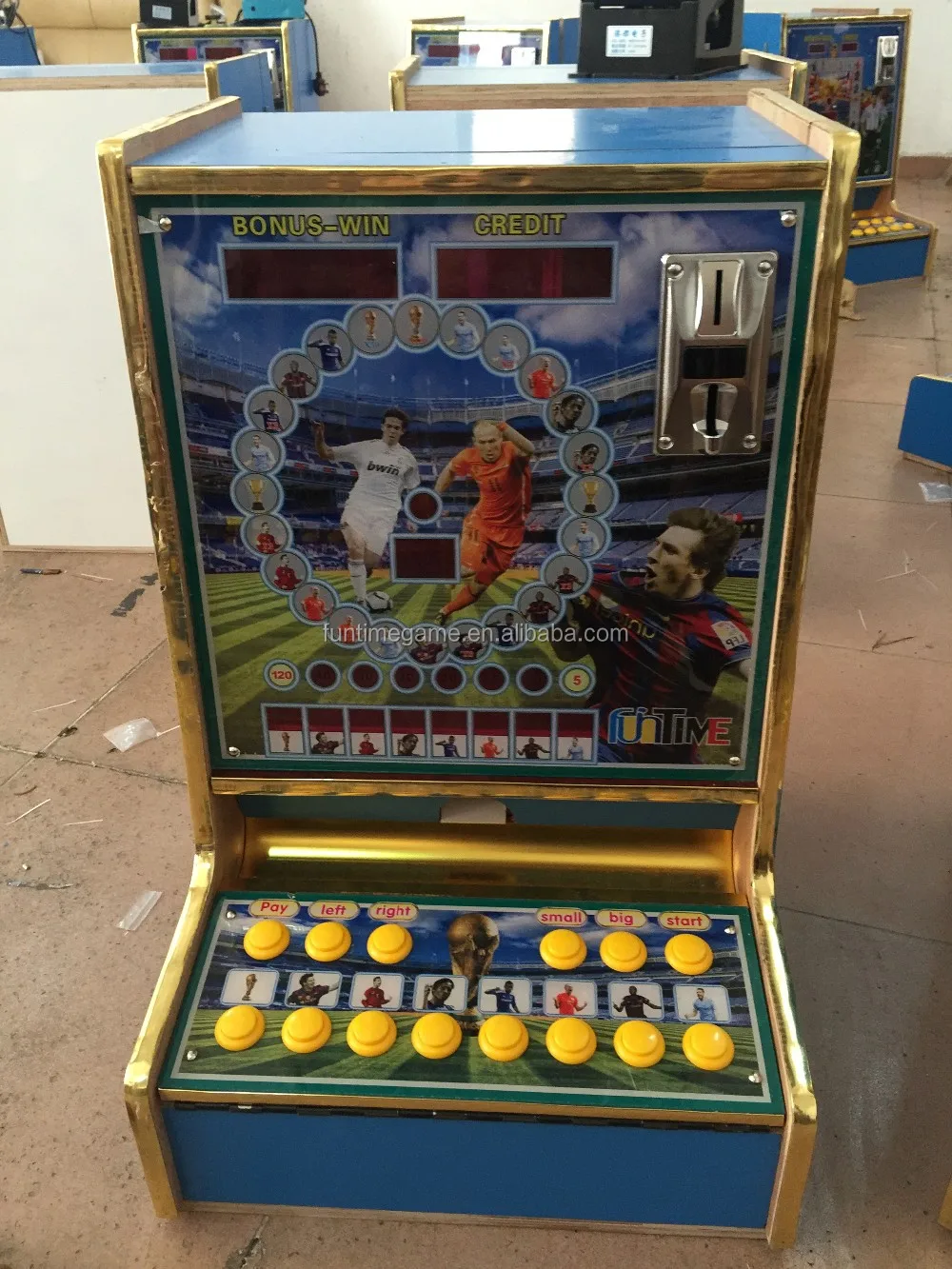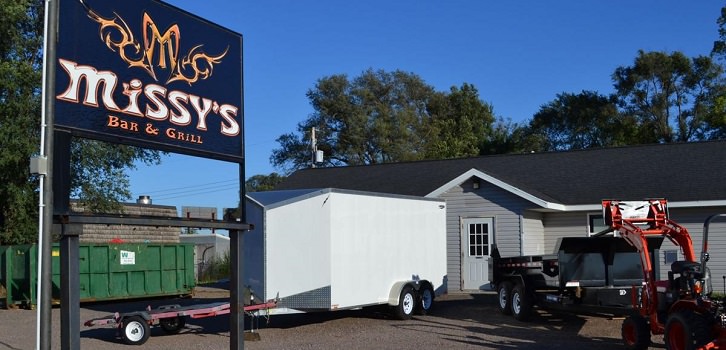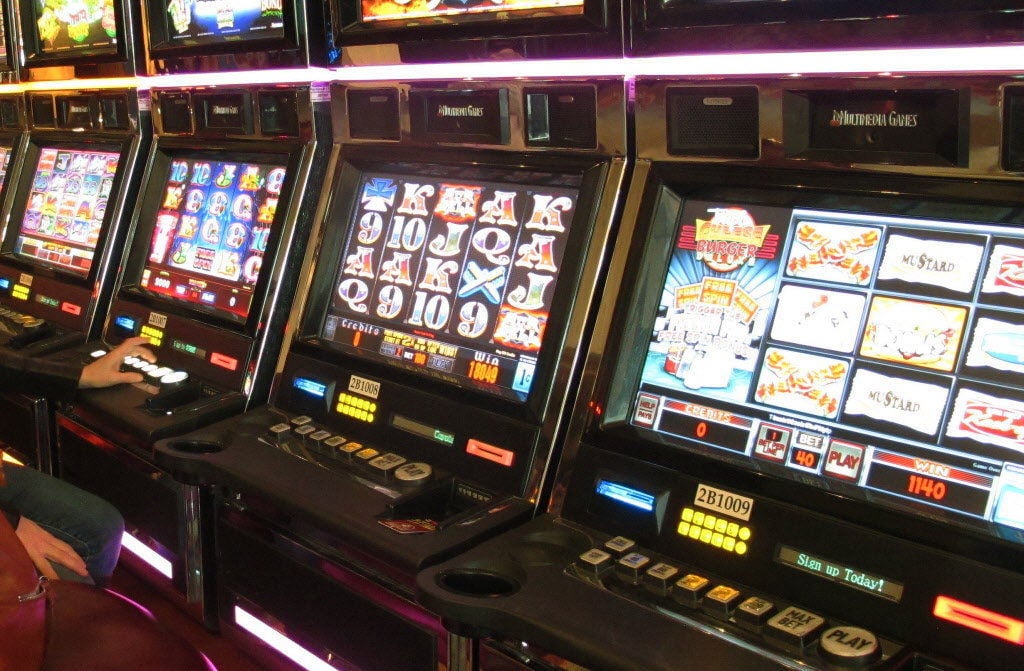When authorities swarmed a central Illinois warehouse last fall, they found more than 1,000 video gamblingmachines they declared illegal, proclaiming the discovery one of the largest such busts in state history.
Four months later, state gambling regulators are still closely watching for an arrest. They view it as a test case on whether the state can make good on key promises to eradicate the underworld business while embarking on a controversial expansion of legalized video gambling.
'It is essential,' said Illinois Gaming Board Chairman Aaron Jaffe, who oversees the expansion of legal video gambling. 'These are machines that would have been in competition with the state. They are not regulated.'
All machines legal Wisconsin: Machines 25 years or older legal Wyoming. Gambling Law US; U.S. Slot Machine Laws & Statutes by State, Gameroom Show.
The bust in Peoria Heights came on the same October day that the state switched on the first new video gambling machines in several suburban bars.
Video gambling machines are NOT legal anywhere in Wisconsin except in a lawful casino. A bar or tavern may have 5 or fewer machines for amusement only, which means that they must either be free to play or not provide anything of value as a prize. Any other machines are illegal at ANY location in Wisconsin. 945.01(3) (3) Gambling machine. 945.01(3)(a) (a) A gambling machine is a contrivance which for a consideration affords the player an opportunity to obtain something of value, the award of which is determined by chance, even though accompanied by some skill and whether or not the prize is automatically paid by the machine. While Wisconsin gambling laws allow betting on dog racing and a few riverboat casinos, most other types of gambling are prohibited in the state. Bona fide contests of skill like snowmobile racing are legal, as are bingo, raffles, and other charitable games. The specifics of Wisconsin gambling laws are listed in the table below. Video gaming devices are NOT legal anywhere in the State of Wisconsin except in authorized Tribal gaming facilities. Bars and taverns may offer five or fewer devices for amusement only, meaning they must be free to play or not provide anything of value as a prize. Any other video gaming devices are illegal.
Those slot machines were just the first trickle in a growing wave of legal gambling now spreading through the state, bringing hopes of jackpots for gambling companies, bar owners and government coffers.
But as the future of regulated gambling in Illinois unfolds, the murkiness of the past lingers.
The Tribune has learned that the Peoria Heights bust centered on a warehouse rented by a felon, who has a gambling conviction and is the son of a politician who once had a stake in a bar game business and has supported legal video gambling.

The case illustrates the tough time regulators may have in separating the new video poker world from the old.
Out with the old
For decades, authorities struggled with enforcing gambling laws against the video poker machines typically labeled 'for amusement only' and stowed in the corner of countless bars and clubs. Costly stings were needed to catch bartenders paying out winnings, and critics say charges were often dropped or reduced to misdemeanors anyway.
In selling legalization — and allowing up to five slot machines in bars across the state — lawmakers said they could ensure unregulated video poker would vanish and those who profited from it would be sidelined in the new gambling gold rush.
To do that, the law made it a felony to simply possess a video gambling machine that wasn't licensed by the Gaming Board. The rule was supposed to eliminate the need for authorities to actually catch someone paying out winnings from an unlicensed machine.
Since that rule took effect in August, a Gaming Board spokesman said, the board's officers have been involved in four other raids across the state, bringing in 14 video gambling machines.
Only one arrest has materialized so far.
Felony charges were brought about a month after authorities say they found four unregulated machines at a club in southwest suburban Alsip.
An October raid in west suburban Bellwoodand January busts in the southern part of the state, in Danville and Centralia, have yet to yield charges.
Those busts, however, pale in comparison to the October raid in Peoria Heights.
At a nondescript warehouse just north of Peoria, authorities say they found 1,131 video gambling machines. Jaffe said the size of the bust indicates an expansive operation of illegal gambling across scores of bars and clubs in the region.
'I don't think anyone has ever had a bust like this,' Jaffe said.
But he isn't going to celebrate until someone is convicted of possessing the machines. Jaffe said his employees have told him that there is enough evidence to make an arrest, though Peoria County State's Attorney Jerry Brady will make that call.
Politics and games
Brady told the Tribune he is weighing which agency should handle the prosecution, if there is a prosecution. He would not elaborate.
A Gaming Board spokesman and Jaffe declined to say who should be charged with possessing the machines.
William Patrick Prather, a convicted felon, was renting the warehouse where the machines were found, a Gaming Board spokesman said. Prather is not accused of wrongdoing.
Are Gambling Machines Legal In Wisconsin Bars Closing
Prather, 57, has spent years under the scrutiny of federal authorities.
The Peoria-area businessman was charged with illegal gun possession by a felon in 2003 while on probation for a gambling offense, federal court records show. Authorities said one of the guns at issue was a MAC-10submachine gun.
Prather pleaded guilty to those charges, then pleaded guilty in 2008 to filing a false tax return, records show.

In all, court records show, he served about two years in prison.
Prather didn't return phone calls seeking comment.
His father, William R. Prather, 80, is a longtime Democraticfigure in Peoria Countypolitics, serving for decades in county and township posts. He once rose to county chairman, though he didn't seek re-election to the board in 2010.
William R. Prather told the Tribune that he knows little about the Peoria Heights bust.
The father is no stranger to the bar gaming business — an industry that pushed for years to make video poker legal. The politician once owned a bar game company.
After the state legalized video gambling, he backed efforts to regulate the machines in Peoria County and opposed a local ban. Board meeting minutes offer a summary of Prather's statements during a 2010 debate on the issue: 'Prather said that gambling is here, it's been here for years, and he supports the original resolution.'
For nearly two decades, business records show, William R. Prather had an ownership interest in Bee-J Amusements. He said the company was never involved in illegal gambling, only bar amusement devices.
In with the new
In 2002, local bar game businessman Tyler Seibert said, he bought Bee-J Amusements from William R. Prather.
The state denied a lucrative video gambling license to Bee-J Amusements last fall.
Gaming Board officials accused Seibert of possessing illegal video gamblingmachines and associating with William Patrick Prather, the convicted felon.
In a letter to Gaming Board officials, one of Seibert's attorneys argued that his client never said more than a 'hello' in passing to William Patrick Prather and that he only talked to the man's father, who 'is well respected in his community.'
The board eventually dropped the alleged association as an issue.
Seibert also argues that when agents found the machines at his business in June, they were legal because the law making them illegal didn't start until August.
Numerous companies operated similar machines and still landed video gambling licenses from the state, Seibert said, adding, 'We all had them.'
Bee-J Amusements is appealing the license denial in court.
An Overview Of The Gambling Laws In The State Of Wisconsin
If it were not for the Tribal casinos and the wide ranging compacts with the State allowing the full range of casino games – Wisconsin would be a barren place for gamblers. There are some curious laws here, with pari-mutuel betting legal on-track, except there are no tracks to bet at. You can enjoy lottery and charity bingo games though, and poker players are well looked after on the Indian reservations too. This article gives you a detailed overview of the Wisconsin Gambling laws.
First of all below you’ll find a history and status of gambling in Wisconsin in quick-fire format. Next I have gone through the different forms of gambling and outlined the legal status of each one. After that some more detail is provided, with excerpts from the Wisconsin statutes, plus a legal timeline. At the end of this page you will find summary and a look at possible future scenarios for gambling in this State.
Wisconsin Gambling Laws – A Brief History
When the Wisconsin statutes were created in 1848, the standard stance at the time was anti-gambling. This is the reason we have a blanket ban on all forms of gambling on the books, with only gradual carve-outs for individual types of gambling occurring over the years.
First to be legalized was limited charity gambling, with bingo and raffle type games allowed under these rules. These games are controlled in terms of their frequency and the maximum prizes offered, and require individual licenses. Wisconsin also has an active lottery, which includes inter-State games – though does not offer video lottery terminal games.
Pari-Mutuel betting was late to Wisconsin, not starting until 1987, while many States were enjoying the extra revenue which came from this to build up their horse racing industries since the 1930’s. There were both horse and greyhound racing tracks in this State for many years, however these went into decline, and the last one was closed in 2009. The law now allows betting only at racetracks, only there are no racetracks to bet at any more. There have been attempts to turn the disused racetracks into casinos by some of the native tribes – these have been rejected by the State.
Tribal casinos make up the bulk of the opportunities to legally gamble in Wisconsin. There are 11 tribes, and following the Federal Indian Gaming Regulation Act of 1998, they entered into negotiations with the State. Compacts were signed in 1991 and 1992. These included class 3 games (table games like blackjack and also poker rooms) which allowed the tribes to find investment and build some lavish casino complexes around the State. There have been legal disputes on and off since then, however the compacts remain in place and Indian gaming continues to thrive.
Poker players can enjoy card rooms with up to 50 tables in Wisconsin. Outside of these rooms there are zero legal opportunities to play. Charitable gambling does not include poker, and home-games are not carved out under the statutes – making these illegal, even if nobody is profiting from running the games. While there is regular enforcement activity against illegal gambling, small stakes social home games are definitely not the target.
What Types Of Gambling Are Currently Legal?
Casino Games: Yes, there are 11 tribal casinos in the State of Wisconsin where you can enjoy the full range (class 3) of casino games. There are no commercial (non-tribal) casinos.

Online Casinos: No, as is the norm, the statutes pre-date the internet, though are considered to have broad enough definitions of gambling to cover online casino gambling.
Live Poker: Yes, you can play live poker at the Indian casinos, including tournaments. Home-games are not exempted under Wisconsin laws like they are in other States. While technically speaking your small stakes social game is illegal – enforcement of this kind of game appears very rare.
Online Poker: No, there are no public discussions about the regulation of poker at this time, and this is assumed to be covered by the core statutes at the moment.
Sports Betting: Yes, you can bet on horse races and greyhound races on track – except there are no horse or greyhound races to bet on in this State – a catch-22.
Lottery Betting: Yes, there is a lottery, the games on offer were limited after legal changes in 1992.
Bingo Games: Yes, charity gambling laws cover low-stakes bingo and raffle games.
Wisconsin Gambling Laws – Statutes And Legal Timeline
Though the tribal casinos give residents a lot of gambling opportunities in Wisconsin, without these the place would be pretty quiet for gamblers. The core definition of the Statute, created at a time when gambling was seen as immoral and something to be blanket banned, focuses on the ‘bet’. In addition there are laws against allowing gambling to take place on your property and even entering a gambling location with the intent to make a bet.
Here is the key passage concerning betting:
[su_quote]A bet is a bargain in which the parties agree that, dependent upon chance even though accompanied by some skill, one stands to win or lose something of value specified in the agreement. (From 945.01)[/su_quote]

Note that the chance / skill debate is pre-empted by this quote, making it harder to argue that poker should be exempt. It is possible to make the skill game case, however there will always be an element of chance.
Here is the unusual part of the Wisconsin statutes, entering a venue with the intention of gambling:
[su_quote]Enters or remains in a gambling place with intent to make a bet, to participate in a lottery, or to play a gambling machine;[/su_quote]
Below are some of the key milestones from the legal history of Wisconsin:
1973: Charitable gambling made legal, this includes bingo and raffle type games.
1987: Pari-mutuel betting made legal on horse and greyhound racing. While on-track betting remains legal (including live simulcast betting) there are no longer any racetracks to bet at, with the last one (Dairyland Greyhound Park) closing its doors in 2009.
1988: First lottery tickets sold, after this was signed into law a year earlier. In 1992, the lottery was restricted to pull-tab and scratch-off games and a numbers drawing game which takes place online, limiting the scope for VLTs. 2009 saw Wisconsin join the PowerBall and Mega Millions.
1991 / 1992: Compacts were signed with the 11 tribes wishing to host casinos on their land, these allowed class 3 gaming, which covers all the casino table games as well as slots.
2007: Last known attempt to legislate casino gaming on non-tribal land was vetoed by Governor Kim Doyle.
Wisconsin Gambling Laws – Summary And Key Statutes
There are sporadic attempts to introduce State legislated gambling in Wisconsin, though none of them make it as far as a vote. The status-quo of letting the tribes handle the gambling has been in effect since the 1990’s – and shows no sign of changing any time soon.
I can see no specific reason why Wisconsin would not legislate for intra-State poker should this be a success elsewhere. At the same time it is difficult to see where the drive to do this could come from, despite Indian tribes showing some interest.
Useful Resources:
Nice Summary / History
- http://legis.wisconsin.gov/lfb/publications/Informational-Papers/Documents/2013/88_Tribal%20Gaming%20in%20Wisconsin.pdf
State Laws Summary
Statutes In Detail
Fun Article On Rubber Duck Racing
Are Gambling Machines Legal In Wisconsin Bars Near
- http://www.huffingtonpost.com/2014/02/18/wisconsin-rubber-duck-bill_n_4811340.html